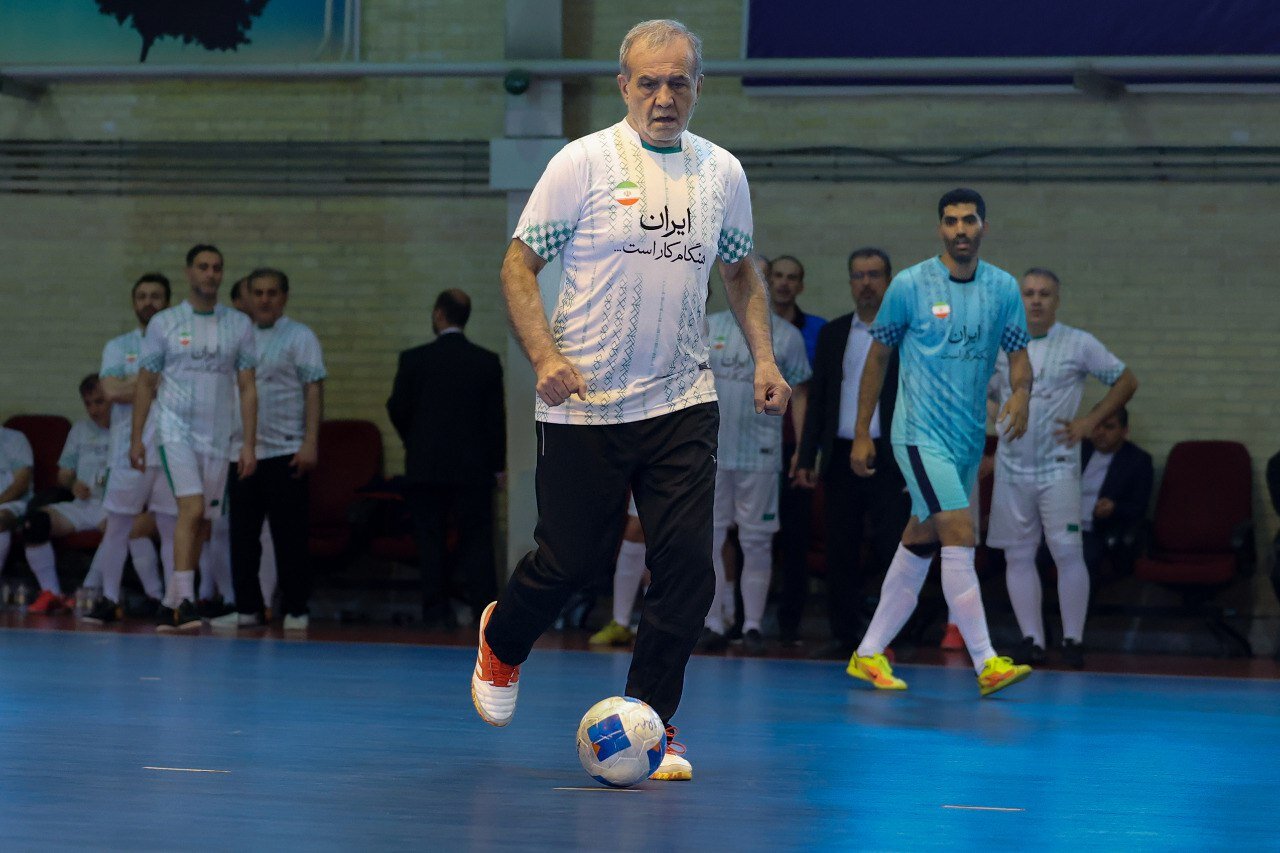'I feel imprisoned, but it's enjoyable'
Tehran Times' exclusive interview with Pezeshkian provides behind-the-scenes look at president's life

TEHRAN – Last Monday, Iranian President Masoud Pezeshkian and his delegation set off on an official trip to the Republic of Azerbaijan. The trip was scheduled for two days: the first day in Baku and the second in Ganja, the resting place of the famous Persian poet, Hakim Nezami Ganjavi. However, the tragic fire incident in Bandar Abbas forced us to cut the trip short.
The plane took off from Mehrabad Airport in Tehran just before noon prayer and headed toward Baku after crossing the Caspian Sea. From the start of the flight, I spoke with the media officials from the presidential office and requested a brief, informal interview with Mr. Pezeshkian. They agreed and said they would bring it up with him. The flight was so short that we barely had time to realize we had landed at Baku Airport, greeted by a cloudy sky and a strong, cold wind.
The trip was intense and packed with activities. In fact, we didn’t even have a chance to grab lunch. Mr. Pezeshkian's final engagement was a meeting with Iranians and students living in Baku. As soon as that program wrapped up, we rushed to the airport, and I once again pursued the possibility of conducting the interview. A light dinner was served during the flight, and the flight map indicated we were only 20 minutes away from Tehran.
Mr. Pezeshkian walked down the aisle of the airplane, greeting his companions and thanking them for their efforts. When he reached me, I showed him a picture of the Tehran Times’ upcoming edition on my phone; it featured an image of him shaking hands with Ilham Aliyev, accompanied by the headline: "On the Path of Friendship."
I mentioned to Mr. Pezeshkian that presidents of some countries often hold informal interviews with journalists during flights, and I would love to ask him a few questions in that same spirit. He replied, "We’re landing soon, but come closer so we can see what happens." A few minutes later, I found myself sitting next to the president at the front of the plane, ready to ask my questions. Shortly after our interview wrapped up, we landed in Tehran.
What follows is the text of my interview with Masoud Pezeshkian, the President of Iran:
Mr. President, what time do you typically start your day?
Usually around seven.
And when do you usually finish work?
It varies. My schedule isn't really typical. Sometimes I'm home by seven in the evening, sometimes six, sometimes not until eleven. It really depends on what we're working on. For example, what time are we getting back tonight?
I think right now it's close to eleven.
It's already past eleven. We won't even be home at midnight.
We'll make it tomorrow!
It just depends on the work and the schedule for the day. The timing is unpredictable. But I consider myself available to the country 24/7.
Mr. President, I understand you were quite involved in sports and mountaineering before your presidency. Do you still have time for leisure or sports activities?
Very little. We try to play soccer or go hiking once a week if we can. But even going for a hike isn't simple. They have to choose places where we can maintain privacy and security. In short, they've restricted my public contact, saying it's not possible to do it any other way. There's nothing I can do about it.
How has Mr. Pezeshkian changed before and after becoming President?
In what sense? I’m still myself. Haven’t changed much. I am the same person
Well, the responsibility and the weight of it...
Ah! The burden of responsibility is, naturally, much heavier. I often say we were free and unburdened before; now we're bound and, in a sense, imprisoned. But this "imprisonment" is in pursuit of solving the people's problems. We're trying to ease their difficulties, and that makes it worthwhile. What keeps us hopeful, what sustains our efforts and our endurance of these hardships, is being able to solve a problem for our people, to bring joy to the minds and spirits of children and everyone. The more we can do that, the easier and more bearable the path becomes.
I'd like to hear a little about your personal relationship with the Leader of the Islamic Revolution. How is it?
We've always been close. We've always tried to adhere strictly to our stated positions, following the policies and directions he's outlined, without deviating from his intentions or guidance.
Some Western media outlets claim that Iran entered negotiations with the U.S. out of weakness.
Have you ever heard us say, in any of our discussions, that we must negotiate, or we'll face serious problems?
No.
In the past, some said that if we didn't reach an agreement, we would face problems. We've never tied the future of our country, ourselves, or the region to negotiations. We are doing our own work. Of course, if we negotiate, build peace, and improve our relations, that would be very beneficial. But it's not as if a deadlock in negotiations means we'll reach a deadlock as well. We won't. We just need to unite, to make use of our intellectuals and wise people. If we create unity and cohesion, there's no obstacle we can't overcome.
